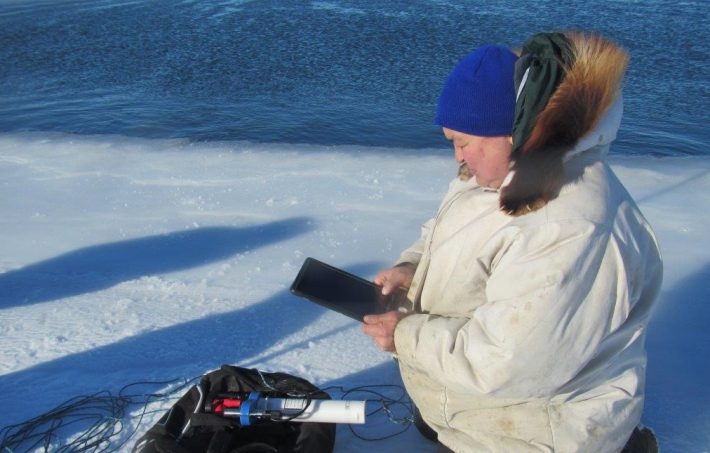Anglia Ruskin University Press Release
Published as part of a joint Special Feature in Journal of Applied Ecology and People and Nature, new research published today in People and Nature finds that Indigenous knowledge is regularly underutilised and misunderstood when making important environmental decisions.

The study investigates how to improve collaborations between Indigenous knowledge holders and scientists, and recommends that greater equity is necessary to better inform decision-making and advance common environmental goals.
The research, led by Dr Helen Wheeler of Anglia Ruskin University (ARU), involved participants from the Arctic regions of Norway, Sweden, Greenland, Russia, Canada, and the United States.
Indigenous peoples inhabit 25% of the land surface and have strong links to their environment, meaning they can provide unique insights into natural systems. However, the greater resources available to scientists often creates a power imbalance when environmental decisions are made.
The study's Indigenous participants identified numerous problems, including that Indigenous knowledge is often perceived as less valuable than scientific knowledge and added as anecdotes to scientific studies.
They also felt that Indigenous knowledge was being forced into frameworks that did not match Indigenous people's understanding of the world and is often misinterpreted through scientific validation. One participant expressed the importance of Indigenous knowledge being reviewed by Indigenous knowledge holders, rather than by scientists.
Another concern was that while funding for Arctic science was increasing, the same was not happening for research rooted in Indigenous knowledge or conducted by Indigenous peoples.
Gunn-Britt Retter, Head of the Arctic and Environmental Unit of the Saami Council, said: "Although funding for Arctic science is increasing, we are not experiencing this same trend for Indigenous knowledge research.
"Sometimes Indigenous organisations feel pressured to agree to requests for collaboration with scientists so that we can have some influence in decision-making, even when these collaborations feel tokenistic and do not meet the needs of our communities. This is because there is a lack of funding for Indigenous-led research."






